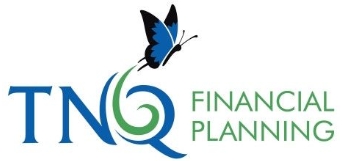Your super isn’t automatically included in your will, unless you’ve given certain instructions to your super fund first.
Deciding who gets your super when you die isn’t as simple as having a will. That’s because wills typically only cover assets you own personally, such as houses, cars, investments, jewellery and other personal items, whereas super is held in a trust for you by the trustee of your superfund.
To make sure your super and any life insurance you might hold with it goes to the people you’d like it to, you need to keep your super fund up to date by nominating a valid beneficiary.
If you don’t nominate a beneficiary, your super fund may decide who receives your super money, regardless of what you have in your will.

Who can I nominate as my super beneficiary?
If you pass away, your super fund must pay a death benefit to your eligible super beneficiaries who can include:
-
your current spouse or partner
-
your children (of any age)
-
someone who is in an interdependent relationship with you
-
anybody financially dependent on you when you die
-
your estate or personal legal representative.
If you nominate your estate or personal legal representative, you must then specify in your will how and who you want to distribute your super money to, which can include eligible beneficiaries (mentioned above), as well as any other people in your life.
It’s important that the directions stated in your will are up to date, so your legal representative pays out your super money as per your wishes.
How do I nominate a beneficiary?
When it comes to specifying your beneficiaries, super funds may give you several options. These options are important to understand, particularly given that the type of nomination you choose could give you greater control over how your super benefits are distributed.
Binding nomination
There are lapsing and non-lapsing binding nominations. Lapsing nominations typically expire after three years unless you renew them, while non-lapsing nominations may never expire.
If you choose a non-lapsing binding nomination, it’s important to remember to make changes should your circumstances change, otherwise, the super trustee is bound to follow the instructions provided in your nomination.
Example
Bob nominated his de facto as a non-lapsing binding nomination. After they split up, he forgot to change his selection.
When Bob passed away some years later, his super death benefit was paid to his former de facto, rather than to his children as these were the instructions he’d last provided.
In instances such as this, a lapsing binding nomination might be something to consider.
This example is illustrative only.
Non-binding nomination
In this scenario, the trustee of your super fund will consider your nomination but will have the final say as to who receives your super benefits. They will attempt to find all potential beneficiaries and decide who is the most appropriate recipient.
No nomination
Depending on the super fund, if you don’t make a nomination the trustee will pay your death benefit to your estate or use its discretion to determine which eligible beneficiaries the money should go to.
Note, they mightn’t choose to distribute the payments the way you’d like, which is why nominating a beneficiary could be a good idea.
When your super is in pension phase
If your super is already in pension phase, then all of the above, plus additional options, may be available and should be considered.
Will the money be taxed when it’s distributed?
Different tax treatment can apply depending on whether your super is paid as a lump sum, income stream or mixture of both, and if your beneficiary or beneficiaries are classified as ‘tax dependants’.
A tax dependant includes:
-
a current spouse, including defactos
-
any children of the deceased who are under the age of 18
-
any other financial dependants.
Paying super death benefits as a lump sum
Lump-sum super death benefits paid to tax dependants directly, or via your personal legal representative, are not taxed, whereas super benefits paid to non-tax dependants may be.
For non-tax dependants, tax will only be payable on any taxable component of the lump-sum super benefit, which may include both a taxed and/or untaxed element.
The taxed element is subject to a maximum tax rate of 15% plus the Medicare levy. The untaxed element is subject to a maximum tax rate of 30% plus the Medicare levy.
Note, an untaxed element will typically only arise where the death benefit includes proceeds from a life insurance policy held by the fund, or where the death benefit is being paid from an untaxed super fund, for example certain government sector super funds.
Paying super death benefits as an income stream
Where the death benefit is paid in the form of an income stream, the tax treatment depends on the age you pass-away and/or the age of the beneficiary, as well as the underlying tax components of the income stream.
If super is paid from a taxed super (and you or the recipient are aged 60 or over at the time of your passing) it’ll likely be paid tax-free.
If you’re both under age 60 at the time of your passing, the taxable portion of income stream payments will be counted as assessable income for your beneficiary, but they’ll be entitled to a tax offset equal to 15% of this amount. When your beneficiary turns 60, the income stream will become tax free.
If the death benefit pension, however, is paid from an untaxed fund, the taxable portion of pension payments received by a beneficiary under age 60 (where you’re also under age 60 at the time of your passing) will be taxed at the beneficiary’s maximum tax rate, with no tax offset. If you or your beneficiary are over age 60 at the time of death, the taxable portion of pension payments will be eligible for a 10% tax offset.
Other things worth noting
Children over the age of 25 (other than those with a permanent disability) can’t receive super death benefits as an income stream. If they do receive a death benefit pension from an earlier age, they’ll typically need to cash it as a lump sum by the time they turn 25.
Meanwhile, changes to the super rules may further restrict your ability to pay a death benefit pension to your beneficiaries, as a result of the pension transfer balance cap. This cap broadly limits the amount that can be transferred from super into pension phase.
What can I do now?
Here’s a quick checklist when considering beneficiary nominations:
-
Check your super fund offers beneficiary arrangements that suit your circumstances
-
Check that the people you’re nominating are eligible beneficiaries
-
If you plan to nominate your personal legal representative, make sure your will is up to date
-
Complete and sign a nomination of beneficiary(s) form and send it to your fund
-
Whether your nominations are lapsing or binding, make sure you review them regularly.
If you have an AMP super account, you can nominate non-lapsing beneficiaries online via My AMP without the need for a witness.
When you’re considering who you’re going to leave your super to, it’s important to think about the people who matter most and how tax implications may affect the amount they could receive.
The tax treatment of super can be complex so if you need assistance, speak to us.
Source: AMP October 2023
Important:
This information is provided by AMP Life Limited. It is general information only and hasn’t taken your circumstances into account. It’s important to consider your particular circumstances and the relevant Product Disclosure Statement or Terms and Conditions, available by calling Phone 07 4054 9400, before deciding what’s right for you.
All information in this article is subject to change without notice. Although the information is from sources considered reliable, AMP and our company do not guarantee that it is accurate or complete. You should not rely upon it and should seek professional advice before making any financial decision. Except where liability under any statute cannot be excluded, AMP and our company do not accept any liability for any resulting loss or damage of the reader or any other person. Any links have been provided for information purposes only and will take you to external websites. Note: Our company does not endorse and is not responsible for the accuracy of the contents/information contained within the linked site(s) accessible from this page.


